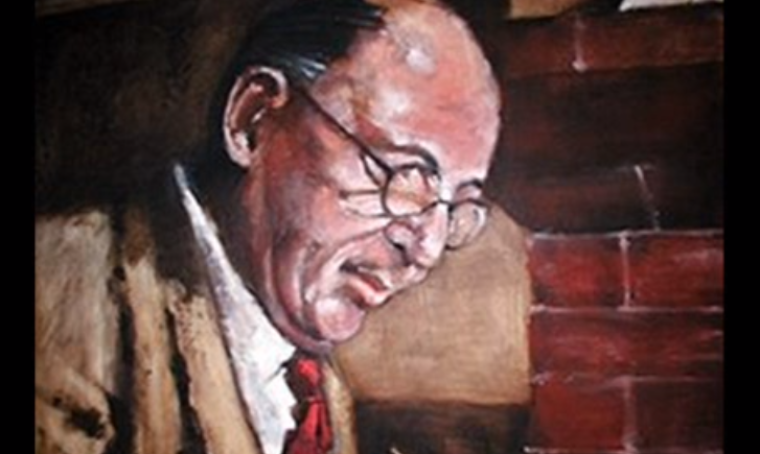Was C. S. Lewis a secret government agent? Yep, says professor

JACKSON, Tenn. (Christian Examiner) – A voice recording sold online revealed Oxford professor and theologian C. S. Lewis to be an agent of the British Secret Intelligence Service—also known more famously as "MI6."
When Harry Lee Poe, theology professor at Union University and author of numerous books about Lewis and his literary fellowship the Inklings, first saw the 78 rpm recording by C. S. Lewis for sale on eBay, he immediately thought it was fraud.
"I knew Lewis well enough to know that he had never made a 78 rpm recording for general distribution, much less one produced by something called the Joint Broadcasting Committee," Poe wrote. An expert on Lewis and a collector of Lewis and Inklings memorabilia, Poe had also never heard of Lewis delivering a lecture called "The Norse Spirit in English Literature."
But he did—at the request of MI6.
SECRET AGENT
No one knows exactly who recruited Lewis, though Poe suspects it might have been one of his university students. Nevertheless, at the beginning of World War II, Lewis, who was a popular lecturer and could pack halls despite the difficult academic climate, Poe said, came to the attention of the Secret Intelligence Service.
In short, MI6 "needed Lewis in the wake of the German invasion of Norway and Denmark on April 9, 1940," Poe said. Britain launched a "surprise invasion" of Iceland on May 10 and needed Lewis's powers of oratory to "help win the hearts of the Icelandic people."
The Joint Broadcasting Committee, a part of the intelligence service, had Lewis record his lecture about the Norse spirit, in which he praised Norse mythology as inspiring to English literature and to himself personally, to be broadcast in Iceland.
At the beginning of the broadcast, Lewis, notoriously reticent about himself, "explained that his imaginative life had been awakened by Norse mythology when he was 14. He went on to explain how his love of Norse mythology only deepened when he began to learn the Icelandic language at Oxford," according to Poe.
Lewis appeared to take to heart the Secret Intelligence Service's goals in recruiting him for the broadcast, emphasizing the "common spirit" unique to the British and the Icelandic peoples. "The literature of England, inspired by the Norse, views self-important office holders as knaves and fools," Poe reports Lewis said. "By implication, the English had come to Iceland to repay a great debt and help fend off the knave and fool who ran Germany."
RADIO BROADCAST
The 78 rpm recording appears to contain one half of Lewis's broadcast, the first and third quarters. The second and fourth parts are so far undiscovered. "Perhaps it will turn up in a flea market someday," Poe muses. "Stranger things have happened. After all, this record turned up on eBay."
The recording appears to be authentic on two counts—it sounds very much like the voice of Lewis, who would become an experienced radio speaker during World War II, and it is independently corroborated by Lewis's correspondence in which he references making a gramophone record in early May 1940.
Lewis "wrote that it had been a shock to hear his own voice for the first time," Poe explained. "It did not sound at all the way his voice sounded to himself, and he realized that people who imitated him had actually gotten it right!"
Poe will play the recording for the first time in public at the Inklings Week in Oxford in July 2016.